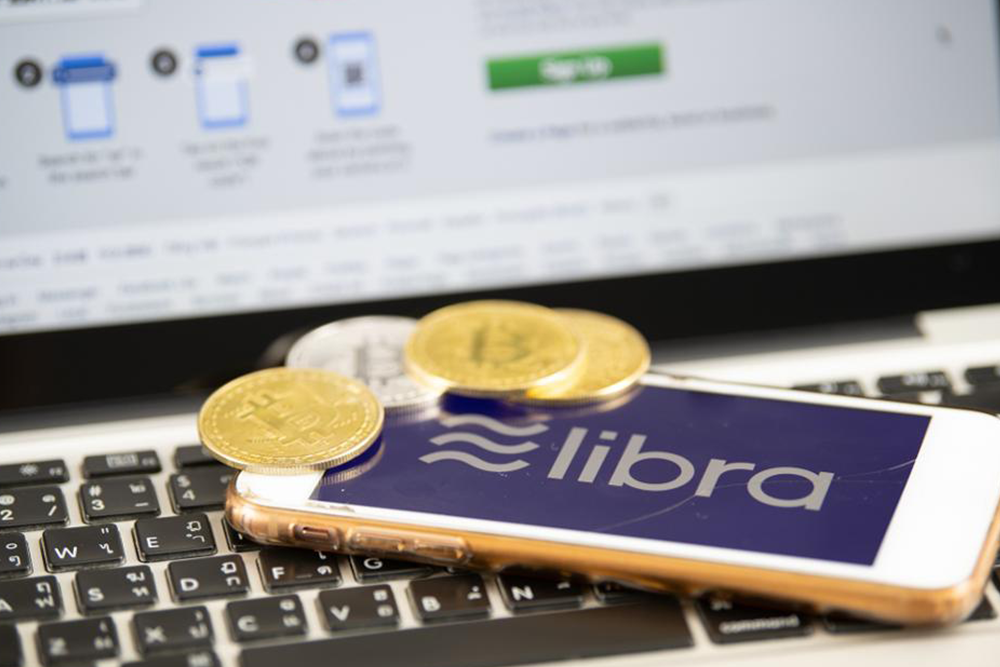Facebook’s Blockchain-Based Cryptocurrency Libra: Everything You Need To Know
2 July 2021
There will be a new cryptocurrency available in 2020—Libra. Although it is backed by several Silicon Valley and mega-companies that make up the Libra Association, Facebook is clearly the leader driving the currency’s adoption. Here’s everything you need to know.

What is a cryptocurrency?
Although there are variations of virtual currency called cryptocurrency, the one most people have heard about before is Bitcoin. They are all based on the concept of blockchain. A blockchain is a distributed computer file that can be read by people across many computers. There is not one entity with control over the file. Blockchains contain encoded information that can’t be changed unless a user has a key that corresponds to the “block” in the chain they want to update. These changes get replicated across the chain. Blockchains are highly secure and publicly viewable. Cryptocurrency is a currency that uses a mathematical blockchain to track exchanges and value, rather than a central bank.
About Libra
Facebook announced Libra on June 18, 2019. A Swiss group called the Libra Association will govern Libra and currently includes 28 member companies, including Facebook, MasterCard, Visa, PayPal, Lyft, Uber, and Spotify, and plans to have 100 companies on board in 2020 when Libra is expected to launch.
According to the 26-page technical white paper released to describe how Libra will work, it will run on a blockchain. However, it’s important to note; Libra diverges from a traditional blockchain in a couple of ways.
1. A traditional blockchain is decentralised. Libra is not decentralised in the way that Bitcoin is since Libra’s nodes (independent computers that process and verify a blockchain) will only be run from the servers of Libra Association’s 28 current members. In response to critics who question the fact that Libra isn’t fully decentralised, Facebook said that Libra can’t be fully decentralised if it’s to create a “global financial infrastructure.” The goal is to have Libra be capable of handling 1,000 transactions per second; Bitcoin can only process seven transactions per second, but Visa’s payment network can support 24,000 a second.
2. Libra is also being designed as a “stablecoin.” The value of Libra units in circulation will be tied to assets made up of various currencies stored by the Libra Association. This is to minimise the traditional volatility of cryptocurrency. In a letter Facebook sent to Fabio De Masi, a German politician, Libra will be backed by the U.S. Dollar (50 percent), euro (18 percent), Japanese yen (14 percent), British pound (11 percent) and Singapore dollar (7 percent). Interestingly, the currency of the world’s second-largest economy, the Chinese yuan, is absent. There are pros and cons to the yuan not being included, but some believe its omission could help assuage concerns of American regulators.
How world leaders are reacting to Libra
Since Facebook announced Libra, it’s faced criticism. Regulators and policymakers around the world are concerned about Libra’s impact on financial stability. The EU launched an investigation of the Libra Association on antitrust issues. In the United States, lawmakers are pressing Facebook for a moratorium on the project until all issues can be analysed and understood. Due to this and other concerns, it’s being reported that some of the original supporters of Libra are backing out.
In France, Bruno Le Maire, the French Economy, and Finance Minister stated that they could not “authorise the development of Libra on European soil” due to the threat to monetary sovereignty.
Some world financial leaders have expressed concern that Libra threatens the financial stability of nations. Facebook refutes these claims while pointing to the “stablecoin” aspect of Libra and the reserve of currencies that backs it up.
A Libra spokesperson told The Independent: “We welcome this scrutiny and have deliberately designed a long launch runway to have these conversations, educate stakeholders, and incorporate their feedback in our design.”
There’s certainly a revolution underway in payment technology from China’s Alipay to Facebook’s Libra. Since finance is a critical part of the world’s infrastructure and a crisis in one market can ripple across the world, it behoves governments and regulators to critically assess new technology that’s untethered from traditional control systems. Not only does a new global financial system need to be safeguarded from breaches and transparent to officials, but it also must not succumb to whims that would only benefit a few. That’s why there are significant questions that need to be answered to fully understand the implications prior to the launch of Libra in 2020.
Related Articles
The Biggest Fintech Trends In The Next 10 Years
If a week is a long time in politics, then ten years is an eternity in the world of technology.[...]
5 Generative AI Chatbots Everyone Should Know About
Generative AI chatbots have rapidly become indispensable tools across various industries, transforming the way we interact with technology.[...]
AI Revolutionizes Voice Interaction: The Dawn Of A New Era In Technology
It’s becoming increasingly common to find ourselves controlling and communicating with machines using our voices.[...]
7 Ways Marketers Should Be Using Generative AI Now
Marketing is all about engaging customers with compelling content – delivering thoughtful, inspiring messages that help to create a deeper relationship with the brand.[...]
The AI Revolution In Wine Fraud Detection
In an era where authenticity is as valuable as the vintage itself, the wine industry faces a pressing challenge: wine fraud.[...]
10 Mind-Blowing Generative AI Stats Everyone Should Know About
A little over a year ago, no one was talking about generative AI. Now, it’s the dominant topic of top-level events like CES and the World Economic Forum.[...]
Sign up to Stay in Touch!
Bernard Marr is a world-renowned futurist, influencer and thought leader in the fields of business and technology, with a passion for using technology for the good of humanity.
He is a best-selling author of over 20 books, writes a regular column for Forbes and advises and coaches many of the world’s best-known organisations.
He has a combined following of 4 million people across his social media channels and newsletters and was ranked by LinkedIn as one of the top 5 business influencers in the world.
Bernard’s latest book is ‘Generative AI in Practice’.










Social Media